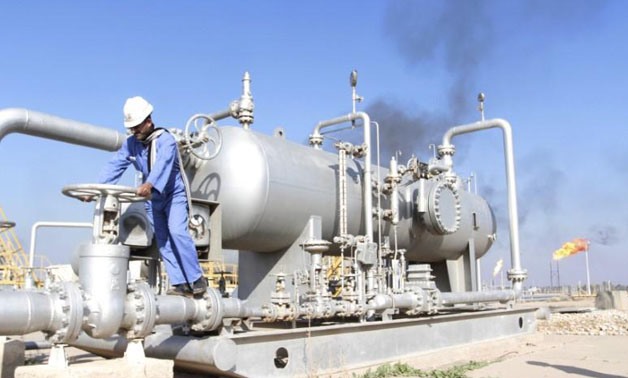
FILE PHOTO: A worker checks the valve of an oil pipe at Nahr Bin Umar oil field, north of Basra, Iraq December 21, 2015. Essam Al-Sudani
SINGAPORE - 1 August 2017: Oil rose on Tuesday, supported by strong U.S. fuel demand, but ongoing high supplies from producer club OPEC kept prices in check.
U.S. West Texas Intermediate (WTI) crude futures were at $50.32 per barrel at 0712 GMT, up 15 cents, or 0.3 percent, from their last close. Tuesday marked the first time U.S. crude has opened above $50 per barrel since May 25.
Brent crude futures, the international benchmark for oil prices, were at $52.85 per barrel, up 13 cents, or 0.25 percent.
"U.S. gasoline demand climbed to last year's highs and U.S. inventories, notably on the East Coast, declined," said French bank BNP Paribas.
Overall U.S. commercial crude oil stocks have fallen by 10 percent from their late-March peaks to 483.4 million barrels, and seasonally adjusted they are now, for the first time this year, below 2016 levels.
"Fears of a supply overhang have receded after two strong (weekly) stock draws in a row in the U.S.," said Sukrit Vijayakar, director of energy consultancy Trifecta.
The American Petroleum Institute (API) is due to publish weekly data on Tuesday.
Despite the lower U.S. inventories, there were also signs that global oil markets remained amply supplied, capping further price rises.
"Crude oil prices face multiple headwinds as OPEC struggles (to cut excess supply)," BNP said.
Oil output by the Organization of the Petroleum Exporting Countries (OPEC) has risen this month by 90,000 barrels per day (bpd) to a 2017-high of 33 million bpd, a Reuters survey found, led by a further recovery in supply from Libya, one of the countries exempt from a production-cutting deal.
This comes despite a pledge by OPEC and other producers, including Russia, to cut output by 1.8 million bpd between January this year and March 2018.


Comments
Leave a Comment